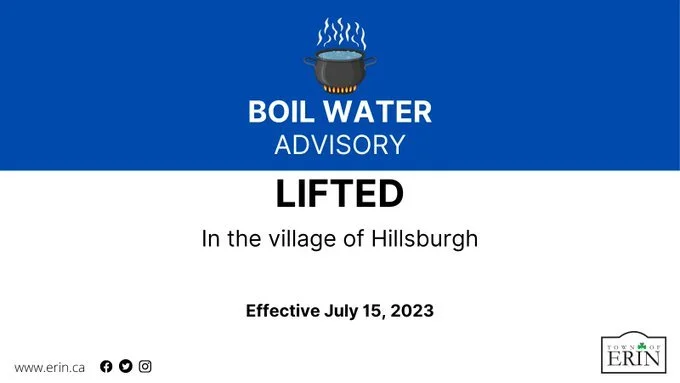The boil water advisory for Hillsburgh was lifted on Saturday. The Ministry of Health issued the notice Wednesday, warning residents and businesses to stop using the drinking water system immediately. According to Wellington-Dufferin-Guelph Public Health, three water samples were collected on July 12 and July 13. They were tested for total coliform and E. coli bacteria. The health inspector now says “the test results indicate the water is bacteriologically safe to drink.” As such, the boil water advisory was removed.
Village of Roche Percee under boil-water order after E. coli bacteria discovered in water supply
Water testing in the village of Roche Percee has revealed E. coli contamination, and a boil-water order has been initiated, the provincial Ministry of Health said Friday The order is applicable for the entire community and other individuals who access water from Roche Percee, about 20 kilometres southeast of Estevan. "It's been an ongoing crisis here for a while," Mayor Jay Riedel said. "We've gone through a flood in 2011 when six to seven feet of water was here, which compromised a lot of stuff in this area. "Our water levels in wells are low and without the rain, when we need to keep them full, we're usually down at the bottom all the time."
Morphine, methadone levels in Metro Vancouver wastewater Canada's highest
Levels of morphine and methadone in Metro Vancouver’s wastewater were Canada’s highest in 2019 and 2020, a reflection of high crime rates and heroin use, says a recent Statistics Canada report. However, codeine levels in B.C. wastewater dropped in 2020 — possibly due the cancellation of surgeries during the pandemic and changes to drug regulations in British Columbia. The study said morphine is produced as a metabolite when the human body consumes heroin and shows up in wastewater.
Province warns of possible water contamination following flooding
British Columbia's Ministry of Health is warning residents in Metro Vancouver and the Fraser Valley of possible water contamination connected to the recent flooding in the province. Record-setting precipitation fell between Nov. 14 and Dec. 2 in southwestern B.C., causing severe flooding that destroyed homes and farms, and caused landslides that killed several people. Officials say heavy rain may have caused overflow or failure of liquid manure storage systems in the region. The province says it is working with farm operators to reduce the risks of possible overflow.





